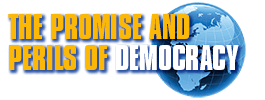On September 16 we kicked off a range of new CHANGE Fall 2020 online events in the frame of The Promise and Perils of Democracy project, and more than 1.000 people joined us from all over the world. CHANGE is a series in which we invite leading thinkers on ways to create a more equal and democratic society. As the BLM and Defund the Police movements have gained significant ground in 2020, Ruth Wilson Gilmore, a leader in the movement to abolish prisons and Director of the Center for Place, Culture and Politics at The Graduate Center, CUNY, as well as Professor of Geography there, took the podium to review the larger picture of the moment and outline activist steps forward. The discussion was directed by Mariame Kaba, founder and director of Project NIA.
In her opening remarks, Professor Gilmore discussed how the pandemic – Covid-19 – sharpens inbuilt societal inequalities and associated struggles. At the core of prison abolition, the end of mass incarceration, the Defund the Police movements and BLM are the struggles over income, social reproduction, culture, and the ability to move or stay in place. It is, in her words, these are the struggles over how to make lives, and relate to the ongoing practice of abolition. Professor Gilmore’s decisively anti-capitalist argument posits that prisons and the police are budget priorities because they preserve systems of power put in place by and for those whom these systems benefit. These systems are maintained at the expense of the majority outside these elite groups — in the US, particularly, black or non-white people, the poor or otherwise under-privileged groups.
According to Professor Gilmore, Covid-19 has sharpened these tensions to the point of life and death, and hence increased the pressure to abolish and to rebuild with the pieces. Electoral politics is insufficient. She urges activism focused on fundamental change through abolition as a constant practice. Based on her experience as an activist, scholar and a person living these experiences, she offers three lessons for pursuing structural societal change:
1. Organize with people who are already organized.
2. Act with the knowledge that our understanding of the relevant issues and conditions — particularly those outside our own experiences — is incomplete and will remain so.
3. Keep in mind that experiences and consciousness are not identity so we can create and hold the space for moving forward.
The struggle to make life is also a global concern, as for instance farm workers in Brazil or California confront systems of power designed to benefit a tiny minority, even if the specific conditions are different.
This week the event was presented with the Center for the Study of Women and Society, and produced by at The Graduate Center’s Office of Public Programs as part of the Promise and Perils of Democracy project with support from the Carnegie Corporation of New York.
